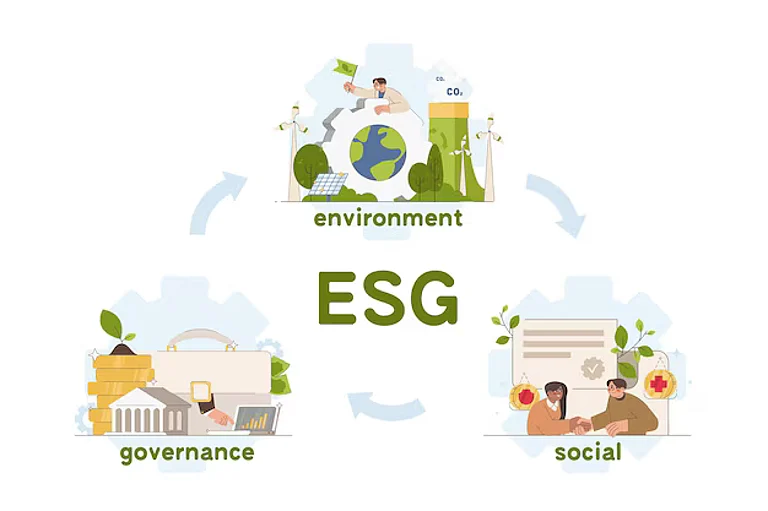Sustainability, like the digital transformation a decade ago, reshapes every aspect of business operations. As the world rapidly evolves, organisations face mounting pressure to demonstrate compliance with increasingly stringent Environmental, Social and Governance (ESG) targets.
ESG Data Challenges With a Focus on Standardisation, Transparency and Accountability in Corporate Decision-Making
Standardising ESG data through frameworks like the ISSB ensures transparency and accountability, helping organisations meet sustainability goals
Good data is crucial for making smart decisions in today's connected world. However, ESG data reporting is not as effective as it should be. Problems with gathering and processing data often lead to distorted outcomes, confusing stakeholders, wasting resources and resulting in poor choices. Research from MIT’s Sloan School of Management found that ESG ratings from different vendors only matched 61% on average, showing apparent inconsistencies. This makes it hard for companies to be fairly compared or for key aspects, such as carbon footprints or workplace conditions, to be measured accurately.
Access to dependable ESG data is essential for realising corporate sustainability ambitions. Leaders increasingly integrate ESG factors into decision-making in multiple sectors, from routine operations to long-term strategic planning. Despite this shift, fulfilling ESG data requirements remains a significant challenge due to the lack of global consensus on what ESG encompasses or how it should be reported. In the absence of standardised, harmonised disclosures, companies must navigate a complex web of frameworks and regulations such as the Global Reporting Initiative (GRI), Sustainability Accounting Standards Board (SASB) standards and the Task Force on Climate-related Financial Disclosures (TCFD).
Additionally, the dynamic nature of global uncertainties, rapid technological advancements, geopolitical changes and evolving regulatory landscapes further complicate ESG data collection and reporting.
This calls for unifying standards such as the International Sustainability Standards Board (ISSB) and new-age technology such as AI and automation to unlock the true potential of ESG data and enable meaningful progress in sustainability practices.
ISSB: Bridging ESG Gaps with Unified Standards
The IFRS Foundation established the ISSB in 2021 to address the fragmented landscape of sustainability reporting. The ISSB seeks to create a global baseline for sustainability disclosures, ensuring consistency and comparability across industries and regions.
The ISSB has streamlined reporting practices by consolidating existing frameworks such as the Climate Disclosure Standards Board (CDSB), SASB, GRI, IIRC and TCFD.
Transparency ensures companies disclose accurate, comprehensive, balanced information about sustainability risks, opportunities and performance. By adhering to ISSB standards, organisations provide clear and detailed ESG data, reducing the chances of greenwashing and fostering investor confidence.
Standardisation, driven by the introduction of IFRS S1 and S2, unifies ESG reporting metrics globally, making sustainability data comparable across industries and regions. This comparability eliminates inconsistencies, providing investors with a structured framework for evaluating ESG performance.
Accountability elevates investor trust by ensuring businesses consistently set measurable ESG goals and track progress. ISSB’s focus on integrating ESG commitments into governance structures compels companies to align their sustainability efforts with strategic decision-making. Independent verification mechanisms further reinforce credibility, holding companies responsible for delivering on their stated commitments. This accountability reassures investors that their funds are contributing to real, tangible progress in sustainability.
Overcoming ESG Data Challenges
In conclusion, the challenges surrounding ESG data—rooted in standardisation, transparency and accountability—have posed significant hurdles for organisations striving to meet sustainability goals. However, as we have explored, the ISSB is emerging as a transformative force, addressing these gaps and offering a unified approach to ESG reporting. By establishing globally recognised standards and frameworks, the ISSB has laid the foundation for consistent and comparable ESG disclosures across industries and regions. Furthermore, investments in rapidly updating technologies such as AI, machine learning and blockchain can support articulating the required ESG data metrics faster and improve the potential for error-free reporting.
Together, these efforts address the existing challenges and pave the way for organisations to unlock new opportunities for sustainable growth, mitigate risks and build trust with investors and regulators alike. These steps mark a crucial turning point in transforming ESG reporting into a driver of genuine progress and impactful change.
Nikhil Poddar is the Director at Deloitte India.
(Views are personal.)


